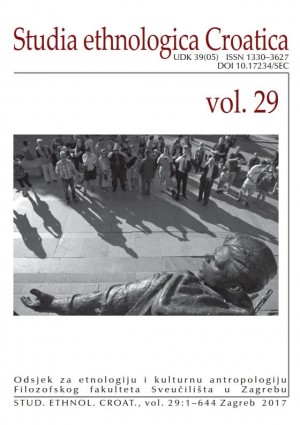O poststrukturalističkoj teoriji diskursa kroz raspravu o uvođenju pojma ‘brak’ u hrvatski ustav
Poststructuralist discourse theory through discussion on the introduction of the concept of ‘marriage’ in the Croatian constitution
Author(s): Sanja ĐurinSubject(s): Constitutional Law, Structuralism and Post-Structuralism, Cultural Anthropology / Ethnology, Family and social welfare
Published by: Sveučilište u Zagrebu, Filozofski fakultet
Keywords: poststructuralist discourse theory; marriage; referendum, Croatian Constitution; Law on Life Partnership; biopolitics;
Summary/Abstract: The discourse theory still occupies a rather marginal position and faces considerable scepticism in the Croatian academic community. By examining the core arguments of the discourse theory, this paper aims to transform the present attitude. The discourse theory assumes that every linguistic and non-linguistic production (including speeches, reports, manifestos, historical events, ideas, interviews, archives, policies, documents, organizations and institutions, narratives in museums, motion pictures, etc.) represents discursive forms which constitute a ‘discourse’ and its ‘reality’. Based on Foucault’s theoretical legacy, and by elaborating the concept of discourse as defined in Ernesto Laclau and Chantal Mouffe’s Hegemony and social strategy, the discourse theory uses discursive forms to “describe, understand, and explain how and why particular discursive formations were constructed, stabilized and transformed” (Torfing 2005:19). Recent discussion on the definition of marriage in Croatia and its introduction in the Constitution of the Republic of Croatia serves as a particular and specific example which has allowed the examination of the main aspects of the concept in this paper.
Journal: Studia ethnologica Croatica
- Issue Year: 2017
- Issue No: 29
- Page Range: 331-356
- Page Count: 26
- Language: Croatian

